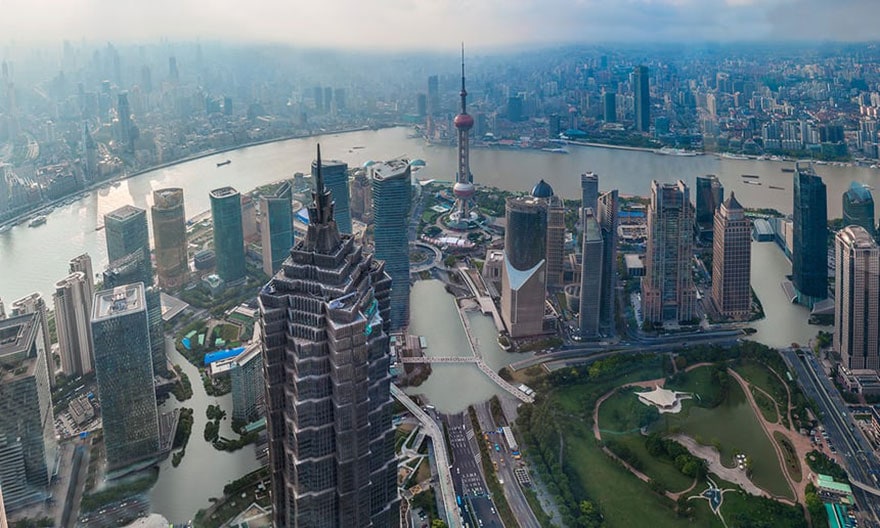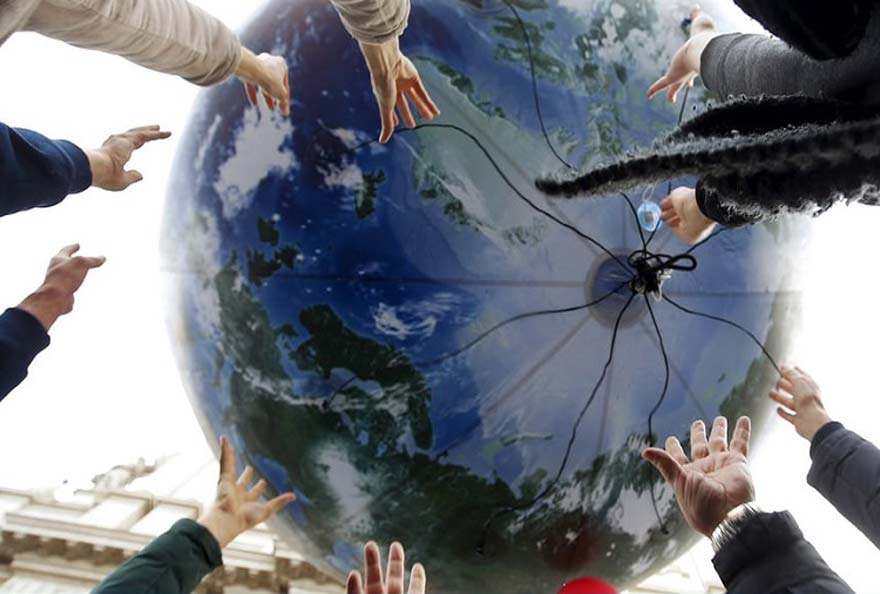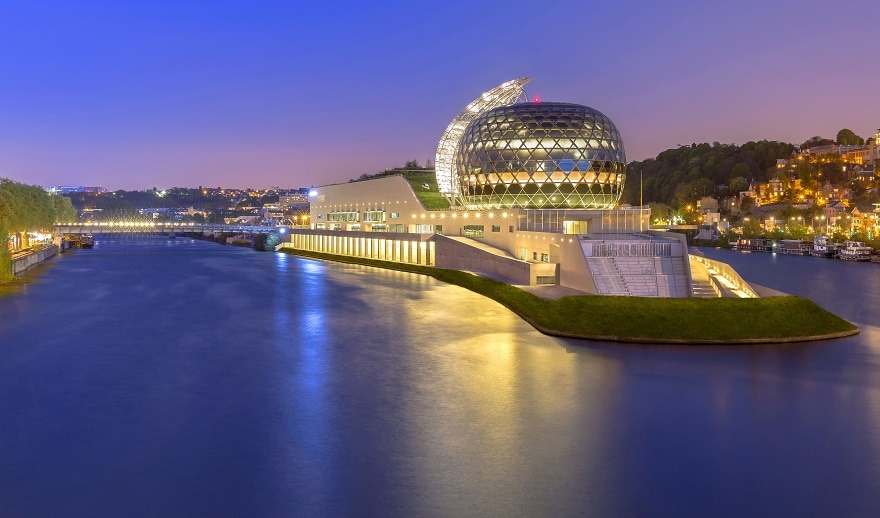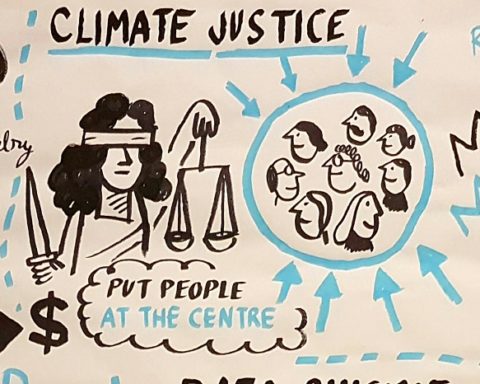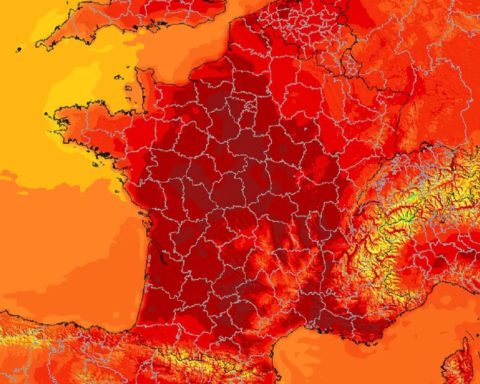The COP23 that has just ended leaves a bitter taste. States failed to accelerate the pace of their commitments. A sad sense of powerlessness, while alarming reports are accumulating on the state of the climate. The most recent one, published by the UN, warns that if we reach the 3° C warming bar, many of the world's major cities will be drowned under the sea.
L’UN launches a warning Hundreds of millions of city dwellers around the world will face the flooding of their cities by rising seawater if global warming reaches 3° C, which, given the current state of commitments to reduce greenhouse gas emissions, is highly probable. Whole neighbourhoods will be swallowed up, millions of people driven out of their homes or drowned. This worst-case scenario has been verified by a group of scientists from Climate Central who with the help of teams of Guardian reporters analyzed different hypotheses. In any case, if warming reached 3°, sea levels would rise by about two metres, wiping out urbanised areas around the world. Cities from Shanghai to Alexandria and Rio to Osaka will be among the most affected. Miami would be flooded - as would the lower third of the US state of Florida.
Everyone knows or is aware of this sad outlook. But it must be said that local efforts to prepare for this scenario, as well as international efforts to make it happen, are very uneven. In six of the coastal regions most likely to be affected, government planners are only slowly coming to grips with the enormity of the task ahead - and, in some cases, doing nothing.
According to the United Nations Environment Programme, the momentum for change is currently too slow. In its annual statement on Emissions Gaps, released during COP23, the international body said that the government's commitments were only one-third of what was needed. Non-state actors such as cities, businesses and citizens can only partially fill this gap, leaving warming on the path to 3°C or beyond by the end of the century, the report said.
UN Environment Chief Erik Solheim said insufficient progress had been made in the year since the Paris agreement came into force. "We are still in a situation where we are not doing enough to save hundreds of millions of people from a miserable future," he said. And there is urgency. Just last week, the World Meteorological Organization announced that atmospheric carbon dioxide concentrations rose last year at a record rate to 403.3 parts per million - a level not seen since the Pliocene era three to five million years ago.
A rise of 3°C would lead to longer periods of drought, more violent hurricanes and a rise in sea level that would result in the redefinition of many coastlines. Depending on the rate at which ice caps and glaciers melt, this could take as little as a few decades. Colin Summerhayes of the Scott Polar Research Institute in Cambridge told the Guardian that a three-degree warming would melt the polar and glacial ice much more intensely and faster than expected, which could raise sea levels by up to two metres by 2100.
At least 275 million urban dwellers live in vulnerable areas, the majority of them in Asian coastal megacities and industrial centres such as Shanghai, Shenzhen, Bangkok and Tokyo.
Osaka, Japan's second largest city, is expected to lose its business and entertainment districts of Umeda and Namba unless global emissions are reduced or flood protection measures are put in place. Officials reluctantly accept that they must now devote more effort to the latter.
" In the past, our response has focused on reducing the causes of global warming, but since climate change is inevitable, according to the Intergovernmental Panel on Climate Change (IPCC), we are now discussing how to respond to future natural disasters. "said Toshikazu Nakaaki of the Osaka Municipal Government Environment Office.
In Miami - which would be almost entirely below sea level, even with a 2°C warming - the sense of urgency is evident at City Hall, where Commissioners are asking voters to approve a "must". Miami Forever "in the November ballot, which includes $192 million for pump station upgrades, drainage extensions, road elevations and dyke construction.
Elsewhere, there is less money for adaptation and the sense of urgency is lower. In Rio de Janeiro, a rise of 3°C would flood famous beaches such as Copacabana, the domestic airport on the waterfront, and many venues for last year's Olympics. But the cash-strapped city has been slow to prepare. A report prepared for the Brazilian presidency noted, "The city has been slow to prepare. situations in which climate change is not considered in the planning process ".
In Egypt, a sea level rise of only 50 centimetres is expected to submerge the beaches of Alexandria and displace 8 million people in the Nile Delta if protective measures are not taken, according to the IPCC. But local activists say the authorities see this as a distant problem. « As far as I am concerned, this issue is not on the government's list of priorities. "said Ahmed Hassan of the Save Alexandria Initiative, a group working to raise awareness of the effects of climate change on the city.
" We are aware that climate change is happening, and perhaps faster than expected. So we are trying to mitigate and adapt to climate change to protect people and property. We can't stop it, but we can reduce the risk... "said Alison Baptiste, director of strategy and investment at the UK Environment Agency. She added that the measures in place should protect most communities in the short to medium term, but in 50 years, the situation will become more difficult. « If climate change projections are accurate, we're going to have to make some tough decisions... ".

Source: The Guardian

